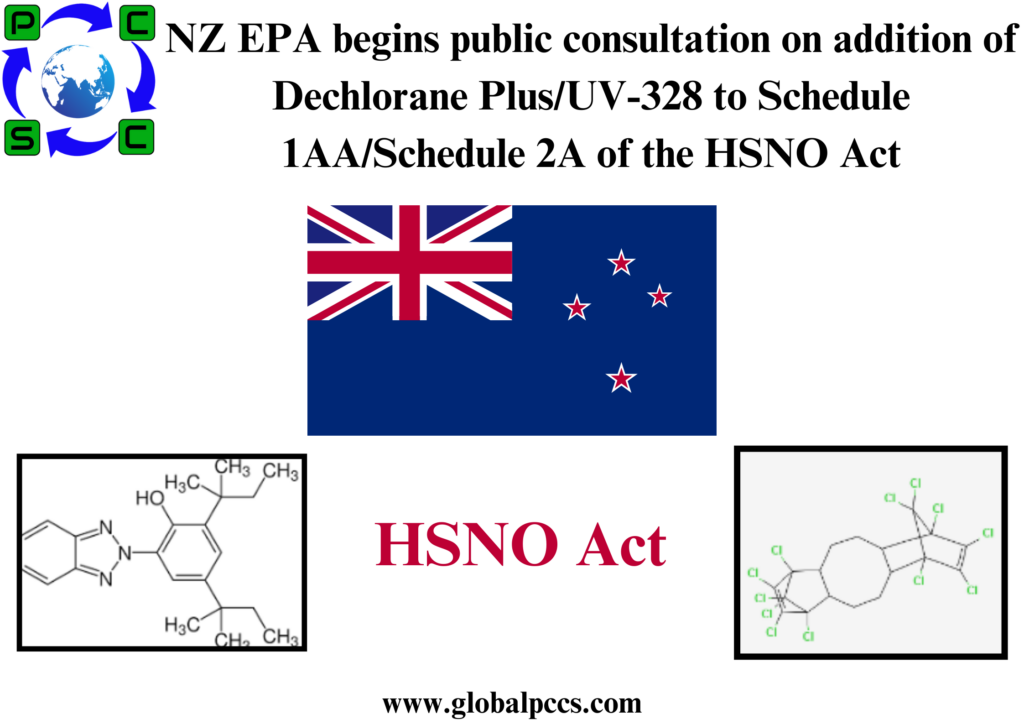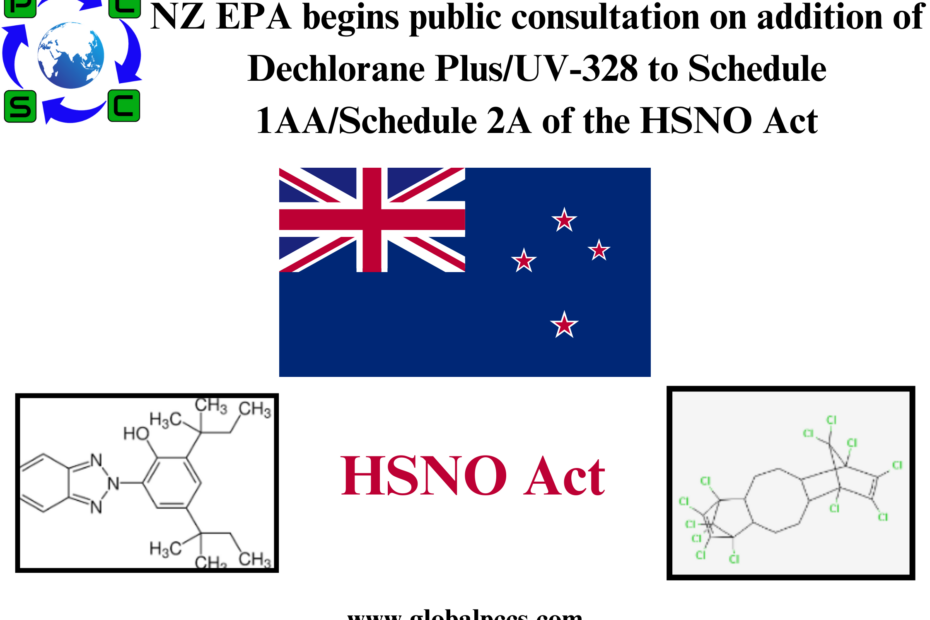 The New Zealand Ministry for the Environment (MOE) / Environmental Protection Authority (EPA), in a press release dated July 25, 2024, announced the publication of a discussion document titled “Amendment to Schedule 2A of the Hazardous Substances and New Organisms Act 1996 to implement restrictions on three new Persistent Organic Pollutants” and initiated a public consultation to add Dechlorane Plus and UV-328 to “Schedule 1AA Stockholm Convention on Persistent Organic Pollutants” and “Schedule 2A Persistent Organic Pollutants” of the “Hazardous Substances and New Organisms Act 1996” (hereinafter abbreviated as “HSNO Act”). The deadline for submission of opinions is September 04, 2024. In the said document, the “specific exemptions” for Dechlorane Plus and UV-328 are the same as the “specific exemptions” in “Resolution SC-11/10: Listing of Dechlorane Plus” and “Resolution SC-11/11: Listing of UV-328” attached to the letter from the Secretary-General of the United Nations dated February 26, 2024
The New Zealand Ministry for the Environment (MOE) / Environmental Protection Authority (EPA), in a press release dated July 25, 2024, announced the publication of a discussion document titled “Amendment to Schedule 2A of the Hazardous Substances and New Organisms Act 1996 to implement restrictions on three new Persistent Organic Pollutants” and initiated a public consultation to add Dechlorane Plus and UV-328 to “Schedule 1AA Stockholm Convention on Persistent Organic Pollutants” and “Schedule 2A Persistent Organic Pollutants” of the “Hazardous Substances and New Organisms Act 1996” (hereinafter abbreviated as “HSNO Act”). The deadline for submission of opinions is September 04, 2024. In the said document, the “specific exemptions” for Dechlorane Plus and UV-328 are the same as the “specific exemptions” in “Resolution SC-11/10: Listing of Dechlorane Plus” and “Resolution SC-11/11: Listing of UV-328” attached to the letter from the Secretary-General of the United Nations dated February 26, 2024
Also, according to the said document, at the point when Dechlorane Plus and UV-328 are listed in Schedule 2A of the HSNO Act, articles already using these substances (“articles in use”) can continue to be used until the end of their service life. However, EPA has expressed the view that, based on note (ii) of Annex A and note (ii) of Annex B of the Stockholm Convention, if persistent organic pollutants are contained as components in “articles in use,” it is necessary to notify the Secretariat of the Stockholm Convention about these “articles in use.” Therefore, companies that are interested in this matter are required to provide EPA with information on “articles in use” during the public consultation period.
The identities and specific exemptions for Dechlorane Plus and UV-328 are listed below.
Dechlorane Plus
Identity
Dechlorane Plus (CAS RN 13560-89-9), includes its syn-isomer (CAS RN 135821-03-3) and its anti isomer (CAS RN 135821-74-8).
Exemptions Use
Use until 2030 for:
- Aerospace
- Space and defence
- Medical imaging and radiotherapy devices and installations.
Use for replacement parts and repair until 2044 for:
- Aerospace, space and defence
- Motor vehicles (covering all land-based vehicles)
- Stationary industrial machines for use in agriculture, forestry and construction
- Marine, garden, forestry and outdoor power equipment
- Instruments for analysis, measurements, control, monitoring, testing, production and inspection
- Medical devices and in-vitro diagnostic devices.
UV-328
Identity
The full name of UV-328 (CAS RN 25973-55-1) is Phenol, 2-(2H-benzotriazol-2-yl)-4,6-bis(1,1 dimethylpropyl).
Exemptions Use
Production and use until 2030 for:
- Parts of motor vehicles (covering all land-based vehicles)
- Industrial coating applications for motor vehicles, engineering machines, rail transportation vehicles, and heavy-duty coatings for large steel structures
- Mechanical separators in blood collection tubes
- Triacetyl cellulose (TAC) film in polarizers
- Photographic paper.
Production and use for replacement parts and repair until 2044 for:
- Motor vehicles (covering all land-based vehicles)
- Stationary industrial machines for use in agriculture, forestry and construction
- Liquid crystal displays in instruments other than for medical applications
- Liquid crystal displays in medical devices and instruments.
As for the plan after the end of the public consultation, the received comments will be analyzed, and a report on this public consultation will be prepared for the Minister for the Environment. Also, the Minister for the Environment will seek a Cabinet decision to amend Schedule 2A and Schedule 1AA of the HSNO Act, as well as Schedule 1 of the “Imports and Exports (Restrictions) Prohibition Order (No 2) 2004”. In order to be consistent with the Stockholm Convention, the amendment to the HSNO Act is expected to enter into force before February 26, 2025.








 Authorised IMDS & CDX Training & Consulting partner for
Authorised IMDS & CDX Training & Consulting partner for






